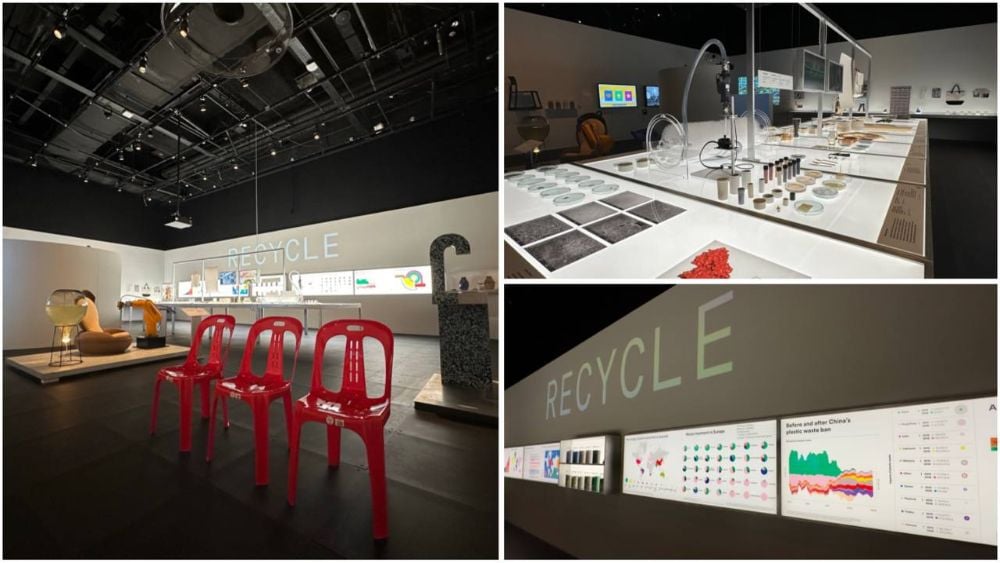Start Young: Even Little Kids Can Pick Up These Sustainable Kitchen Practices
Making your kitchen sustainable and more “green” for kids doesn’t mean only cooking vegetables. It means making the effort to embody the best sustainable practices in all aspects of the kitchen, including the cooking, the produce, the cleaning and everything else that goes on in that heart of the house.
Teaching little ones practical ways to keep the kitchen sustainable from young will go on to serve them well when they are older and have to manage their own household on a budget.
In addition to recycling as much as possible and reducing their dependence on single-use plastics, get your little ones started on their sustainable kitchen outlook by thinking about these things:
-ways-for-young-ones-to-help-keep-your-kitchen-sustainable/sustainablekitchen_veggies.jpg?sfvrsn=5547735_1) IMAGE: UNSPLASH
IMAGE: UNSPLASH
1. Examine at your diet
We all know that eating a healthy diet rich in grains, fruits, and vegetables, and cutting back on meat and dairy, is good for our health and good for the climate, especially given the staggering amount of resources that are required for meat production. Ask your kids what changes they would suggest making to your family’s lifestyle to be more sustainable.
-ways-for-young-ones-to-help-keep-your-kitchen-sustainable/sustainablekitchen_foodprep.jpg?sfvrsn=b116915c_1) IMAGE: 123RF
IMAGE: 123RF
2. Use as much of each ingredient as possible
We sometimes throw away a lot of the fruit or vegetable, not realising that most of everything can be used. For instance, broccoli, cauliflower and mushroom stalks are all fine to eat; there is no need to peel the skin of potatoes, sweet potatoes or pumpkins when you’re roasting them (just be sure to give them a good scrub before). And eating the peel of apples and cucumbers is really good for you too. Save bones, vegetable scraps and leftover herbs in the freezer until you have enough to make your own broth or stock. Likewise, teach your children the importance of storing leftover food in the fridge and reinventing it for another meal.
-ways-for-young-ones-to-help-keep-your-kitchen-sustainable/sustainablekitchen_compost.jpg?sfvrsn=c65a42e0_1) IMAGE: 123RF
IMAGE: 123RF
3. Save scraps for compost
Compost is simply decayed organic matter that turns into a rich, nutritious organic fertiliser for soil, and it’s incredibly easy to compost fruit and vegetable scraps, rather than just throwing them in the garbage. Moreover, teach your little ones that by composting food scraps, they’ll be saving them from landfill and saving the planet from the harmful greenhouse gas methane that is released upon decomposition. Things that are okay to compost include fruits, vegetables, eggshells, coffee grounds, newspaper and even hair.
-ways-for-young-ones-to-help-keep-your-kitchen-sustainable/sustainablekitchen_waste.jpg?sfvrsn=7536c5d9_1) IMAGE: 123RF
IMAGE: 123RF
4. Reduce food waste
How many times have you had to throw away spoiled but unused produce out of the fridge just because you didn’t get around to using it in time? Although this sounds like a repetition of the point above, it actually refers to teaching little ones the importance of meal planning and repurposing leftovers, instead of throwing leftovers and extras in the trash. Planning meals a week in advance (if possible), is a great way of ensuring that you buy just how much food you need, and therefore reduce waste. While you’re shopping, try to reduce the amount of plastic packaging you’re picking up too.
-ways-for-young-ones-to-help-keep-your-kitchen-sustainable/sustainablefood_oddveggies.jpg?sfvrsn=4c5c02fc_1) IMAGE: 123RF
IMAGE: 123RF
5. Odd-shaped doesn’t mean bad
Hopefully you’ve already instilled the "beauty only runs skin-deep" value in your kids. Same applies to fruits and vegetables. Our preference for picking up only perfect-looking produce means that healthy and nutritious food that doesn’t look 100% right, is often discarded just because of its odd shape. Save your family some hard-earned $$$ by buying ugly foods that are often sold at a discount, and help save good food from going to senseless waste.
-ways-for-young-ones-to-help-keep-your-kitchen-sustainable/sustainablekitchen_cleaners.jpg?sfvrsn=c14a21df_1) IMAGE: 123RF
IMAGE: 123RF
6. Make your own cleaning products
Not only are conventional cleaning products brimming with toxic chemicals such as ammonia and chlorine, but they are bad for our health and bad for the environment too. Show children how easy it is to make your own cleaning products, using natural (and safe) ingredients only. For instance, equal parts of white vinegar and water make for a great all-purpose cleaner (add some lemon rind for a more pleasant aroma). Make a handy deodoriser by spritzing together a mixture of baking soda and water (in a spray bottle), while a paste of the two makes a great stain and spot remover. Meanwhile, soaking orange peels in vinegar for two weeks makes for a lovely, scented all-purpose home cleaner. But if you don’t have confidence in homemade cleaners, then at least use natural cleaning products instead of products containing harsh chemicals.
For the latest updates on Wonderwall.sg, be sure to follow us on TikTok, Telegram, Instagram, and Facebook. If you have a story idea for us, email us at [email protected].







-ways-for-young-ones-to-help-keep-your-kitchen-sustainable/sustainablekitchen_family.jpg?sfvrsn=87e7aec9_1)



